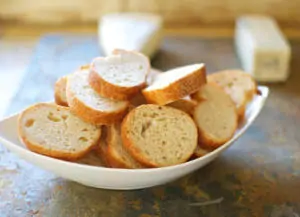Nutrition for intestinal infections is an important part of complex therapy. Following a therapeutic diet helps to quickly cleanse the gastrointestinal tract of pathogenic viruses, bacteria, fungi, and normalize digestion. Including certain foods in the diet can even enhance and prolong the effect of pharmacological drugs. This significantly speeds up recovery from viral or bacterial infections and reduces the likelihood of complications.
The content of the articlePrinciples of therapeutic nutrition
Diet for acute infection - eating foods that are easily broken down and absorbed in the gastrointestinal tract. And its work is disrupted after the introduction of Clostridia, Shigella, Brucella into the human body. Undigested food particles are deposited on the mucous membranes, the tissues become inflamed, and their functional activity decreases. Under such conditions, the stomach simply cannot cope with digesting foods high in fat and coarse fiber.
Diet menu
The diet for intestinal infections has a drawback: due to small amounts of food, it is difficult to replenish the reserves of proteins, fats, and carbohydrates. A variety of dishes in the diet will help correct the situation:
- breakfasts: savory bun, natural yogurt, boiled egg, croutons, oatmeal with water, rose hip decoction, buckwheat porridge with toast, dried fruit compote, steam omelette;
- second breakfasts: white bread crackers, low-fat fermented milk products, cereal breads;
- lunches: chicken soup, noodle soup, clear beef broth, meatballs, pike perch baked with vegetables, viscous cereal porridge, mashed potatoes with water;
- afternoon snacks: fruits, vegetables, stewed in water or baked, boiled rice with a small piece of butter and (or) honey;
- dinners: jacket potatoes, fish balls, steamed omelette, dried bread, stewed vegetables, carrot puree.
Following a diet during an intestinal infection can reduce the symptoms of a serious illness by reducing the load on the gastrointestinal tract. Since the diet is light and gentle, the mucous membranes are not irritated, and the liquid is not absorbed into the feces, causing diarrhea. The diet is aimed at suppressing the processes of fermentation and decay, accelerating the evacuation of pathogenic microorganisms.



